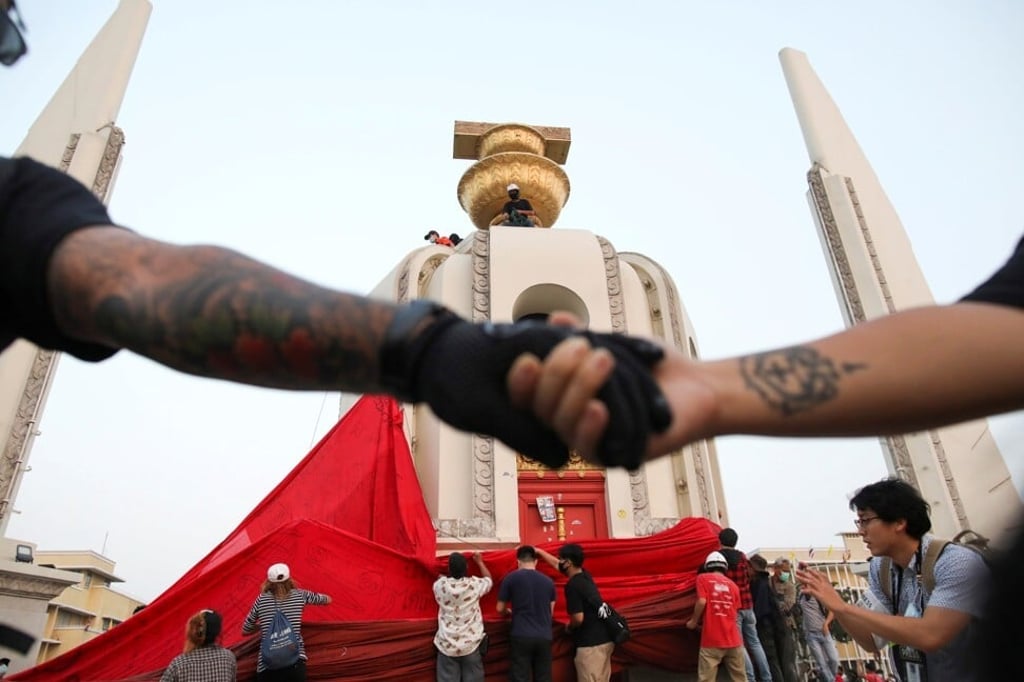Thailand’s young protesters hit by royal defamation law, as pro-democracy movement wanes
- The crowds on Bangkok’s streets have thinned as Covid-19 surges and protest leaders are tied up in legal cases
- At least 58 people have been charged under the lèse-majesté law, while four have been held in pre-trial custody since February 8

“This power [of the monarchy] is the scariest thing I could ever imagine for the Thai people, it overshadows the entire nation,” Panusaya Sithijirawattanakul – better known by her nickname, Rung – told This Week in Asia before she reported to court for a royal defamation charge.
She was asked to return with several other leaders on March 8 to find out if the charge would be prosecuted. “I’ve come to terms with [being in jail] but I still have hope that they won’t lock us up forever,” Rung said.
Despite the law, for several months last year the boisterous, satire-laden youth movement showed their anger at an unequal society dominated by elderly generals loyal to the king, in protests that unspooled into calls for reform of the monarchy and open mockery of its key figures.
